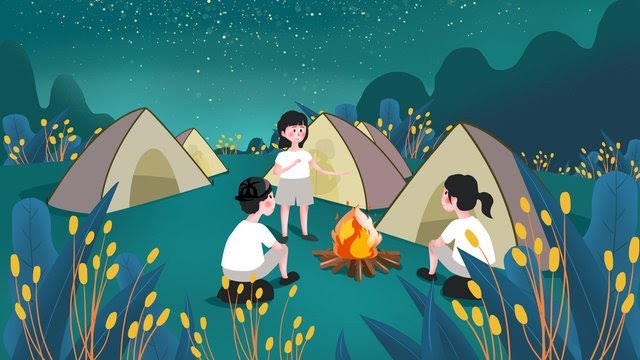After a week of camping with no Wi-Fi, they all agreed: maybe nature was too relaxing.
At first, the idea sounded perfect—an escape from the hustle and bustle of the city, no notifications, no Zoom meetings, just the sound of crickets and the fresh scent of pine. Five college friends, usually busy with work and their own lives, finally agreed to travel to a protected forest at the foot of a mountain. They wanted to rekindle a friendship that once felt inseparable.
The first day was peaceful. They set up the tent with a bit of fuss because they forgot how to set it up. But that night, they laughed heartily around the campfire, sharing old stories and burning toast.
But as the days passed, the silence began to turn into emptiness. Without music, without movies, without memes or breaking news from social media, the conversation began to dry up. They tried playing cards, hiking, even meditating—all of which ended with a half-laughing lament: “Why do I keep getting sleepy?”
Oddly enough, it was precisely in those moments of "boredom" that they began to notice small things: the sound of falling leaves, ants neatly moving across their backpacks, even the shape of clouds that resembled fried chicken. They didn't realize they were learning to enjoy something unhurried.
And when they finally returned to town, the reappearance of the Wi-Fi signal made them spontaneously cheer. But there was a brief pause before they opened their phones—a meaningful silence.
Perhaps nature was too calming. But they knew that wasn't a bad thing. It just took time to get used to. And they agreed: next year, maybe not a week. Maybe just three days would do.
